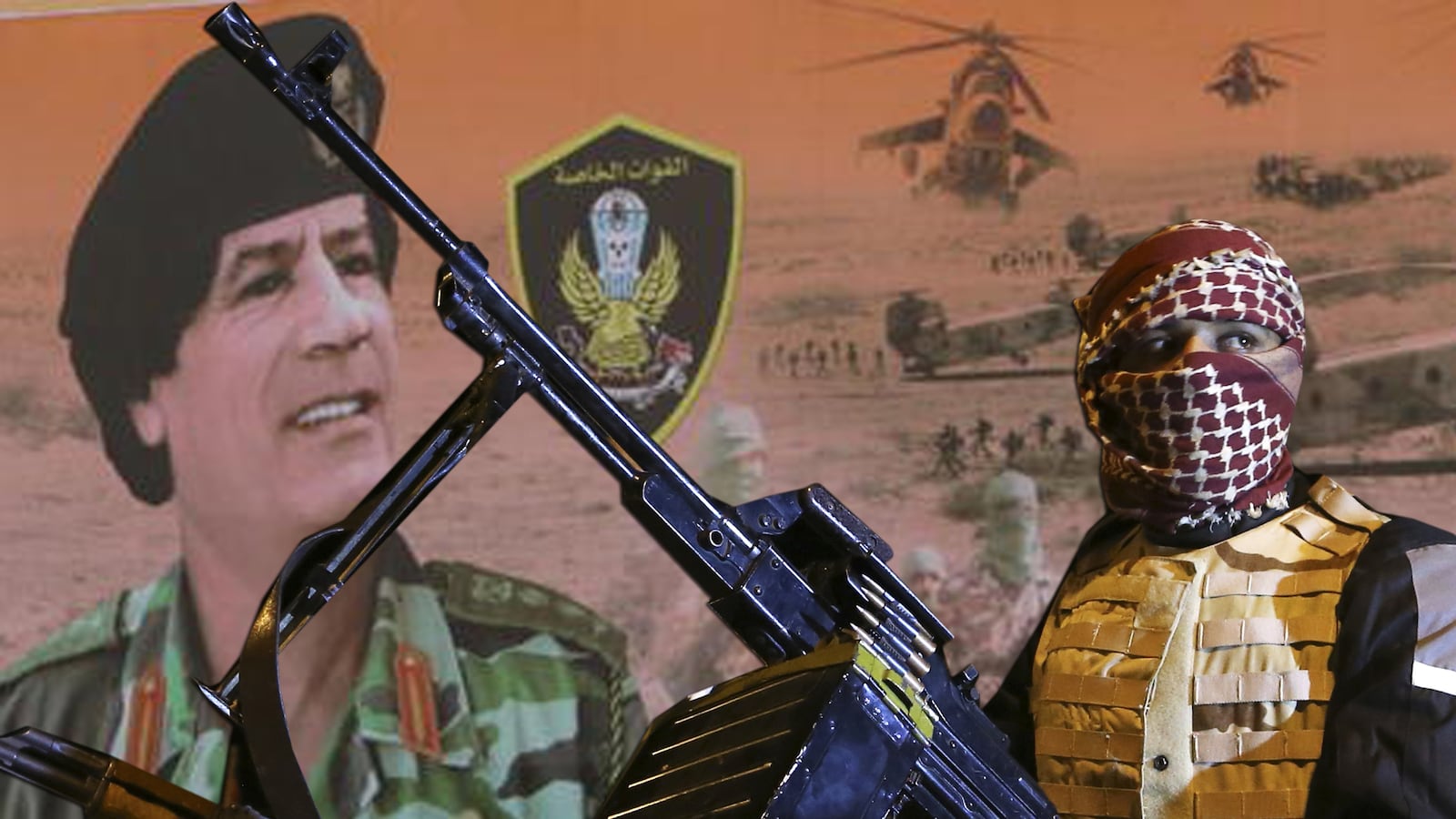In the nearly 20 months since the September 11, 2012 Benghazi attacks, al Qaeda operatives and allied terrorists have flocked to Libya, making the fragile North African country a hub for those seeking to wage jihad from north Africa, current and former U.S. counterterrorism officials tell The Daily Beast.

Not only does al Qaeda host Ansar al-Sharia, one of the militias responsible for the Benghazi attacks that killed Ambassador Chris Stevens and three other Americans. But U.S. intelligence now assesses that leaders from at least three regional al Qaeda affiliates—al Qaeda in the Islamic Maghreb, al Qaeda in the Arabian Peninsula and members of the organization of Al-Mulathameen Brigade loyal to Algerian terrorist, Mokhtar BelMokhtar—have all established havens in the lawless regions of Libya outside the control of the central government.
One U.S. military contractor working on counter-terrorism in Africa summed up the situation in Libya today as simply, “Scumbag Woodstock.” The country has attracted that star-studded roster of notorious terrorists and fanatics seeking to wage war on the West.
An American counter-terrorism official used a different metaphor to describe the situation. “Libya today plays host to members and associates of several AQ-allied groups, in some ways becoming a jihadist melting pot,” this official told The Daily Beast. “These groups haven’t united under the same banner, but the ad hoc links and intermittent cooperation among them are worrisome, especially as some of these groups have made no secret of their desire to conduct attacks beyond Libya’s borders.”
The collapse of security in Libya comes as the House of Representatives forms a special committee to investigate the 9/11 anniversary attacks in Benghazi. Those strikes, according to an investigation from the Senate Select Committee on Intelligence, were the work of individuals with clear links to al Qaeda (PDF). The report says that already in the summer before the Benghazi attacks the CIA and the Defense Intelligence Agency had produced reports on how al Qaeda affiliates were establishing havens in Libya.
Libya does not pose as immediate a problem for U.S. counter-terrorism efforts as the threat posed from Syria’s civil war, where Islamic extremists are attracting recruits from around the globe. FBI Director James Comey told The Washington Post on Friday that he sees the threat of Westerners joining al Qaeda today in Syria coming home to wage attacks as a threat comparable to when jihadists joined the fight in Afghanistan in the 1980s and 1990s, setting the stage for 9/11.
But Libya is nonetheless intricately involved in funneling fighters into Syria, and its lawless regions provide an ideal haven for al Qaeda affiliates and fellow travelers.
“Al Qaeda and a number of other Salafi jihadist groups are increasingly using Libya as a sanctuary for training, cooperation, propaganda, fundraising and other activities,” said Seth Jones, the associate director of the International Security and Defense Policy Center at the Rand Corporation. “To be blunt, they are taking advantage of a government that has very limited control of areas of some major cities.”
Jones said those areas include the city of Dernaa, which became infamous in the last decade as a transit point for fighters seeking to join al Qaeda in Iraq. As The Daily Beast reported last month, U.S. officials in Libya today consider Dernaa to be a “denied area,” meaning U.S. forces would have to fight their way into the territory.
The State Department’s annual report on counter-terrorism was also particularly blunt about why Libya was such an attractive destination for terrorists. The many factors listed in the report that contributed to Libya’s permissive environment for terrorists included: “a central government with weak institutions and only tenuous control over its expansive territory; the ubiquity of uncontrolled weapons and ammunition; porous and inaccessible borders; heavily armed militias and tribes with varying loyalties and agendas; high unemployment among young males along with slow-moving economic improvement; divisions between the country’s regions, towns, and tribes; political paralysis due to infighting and distrust among and between Libya’s political actors; and the absence of a functioning police force or national army.”
A reminder of the failure of Libya’s government to exert control over wide swaths of territory came last week when gunmen stormed Libya’s parliament building.
One factor that has led to Libya’s worsening security situation is the fact that some of its neighbors have intensified their counterterrorism efforts, leading jihadists and al Qaeda affiliates to seek out new havens. “Egypt has become a little less friendly, there has been a crackdown over the last several months in targeting the Mohammed Jamal network and other Sinai groups,” Jones said. “So Libya is emerging as an attractive location.”
Libya today is a far more attractive locale for al Qaeda that it was under the regime of Muammar Qaddafi. Obama in 2011 decided to enter Libya’s civil war after Qaddafi threatened to destroy Benghazi. At the time, Obama said his decision was guided by humanitarian considerations.
While Qaddafi himself funded and supported terrorist attacks against the United States in the 1980s, after 9/11 he emerged as an ally on counterterrorism. Following Qaddafi’s decision at the end of 2003 to turn over his nuclear program to the United States, even many U.S. politicians who supported Qaddafi’s ouster in 2011 credited him with cracking down on al Qaeda.
A 2009 State Department cable first disclosed by Wikileaks summarized a meeting with Senators John McCain and Joe Lieberman and Qaddafi’s national security adviser when Lieberman “called Libya an important ally in the war on terrorism, noting that common enemies sometimes make better friends.”
Now Qaddafi is gone. But in Libya, those common enemies very much remain.






